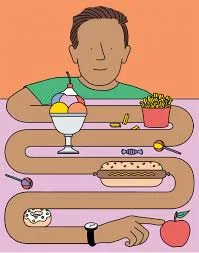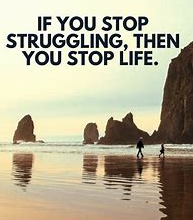Breaking Bad Habits
QUESTION: WHY is it so [damn] hard Breaking Bad Habits? Simple logic tells us that if you know something is BAD for you, WHY CAN'T you just stop it? A year-on-year survey says that approximately 70 percent of smokers say they would like to quit. Drug and alcohol abusers struggle to give up addictions that hurt their bodies and tear apart families, friendships and even relationships. And many of us have unhealthy excess weight that we could lose if only we would eat right and exercise more. So, WHY DON'T we do it? Everywhere, psychologists have been searching for answers and some researchers studied as to WHAT happens in our brains as habits form📗📙📘
And indeed, they found clues as to WHY BAD HABITS, once established, are so [damn] difficult to 'kick out'. And according to these experts, understanding the 'biology' of HOW we develop routines that may be harmful to us and HOW to break those routines and embrace new ones, could help us change our lifestyles and adopt healthier behaviors💥💥💥YES YES YES, HABITS can arise through repetition. And this runs true way beyond humans. DON'T look too far because even our pet animals around develop their own HABITS way after they have been trained, through repetition no less. And indeed, most of our HABITS are a normal part of life and often helpful. Waking up every morning, taking shower, combing your hair, brushing teeth, those are part of our core HABITS💦💦💦
We can even drive along familiar routes on 'mental auto-pilot' without really thinking about the directions. So, WHEN behaviors do become automatic, it gives us that advantage because the brain does NOT have to use conscious thought to perform the activity. This considerably frees up our brains for it to focus on different things instead. BTW, HABITS can also develop when good or enjoyable events trigger the brain's 'reward' centers❗❗❗
Our takeaway: If there is a culprit in all these HABITS, blame it to that chemical called DOPAMINE. Because this explains WHY it is [damn] difficult and harder to break from pleasure-based HABITS. If you do something over and over again, and DOPAMINE is there WHEN you're doing it,and that strengthens the HABIT even more. And WHEN you're NOT doing those things, DOPAMINE creates that 'craving' to do it again. This explains WHY some people 'crave' for drugs even if that drug NO longer MAKES them feel particularly good once they take it. In a sense, then, parts of our brains are working against us WHEN we attempt to overcome such BAD HABITS. BUT the good news is that we humans have many more 'BRAIN REGIONS' to help us do WHAT's best for us. After all, BREAKING BAD HABITs is not a tall order😃😃😃




























































